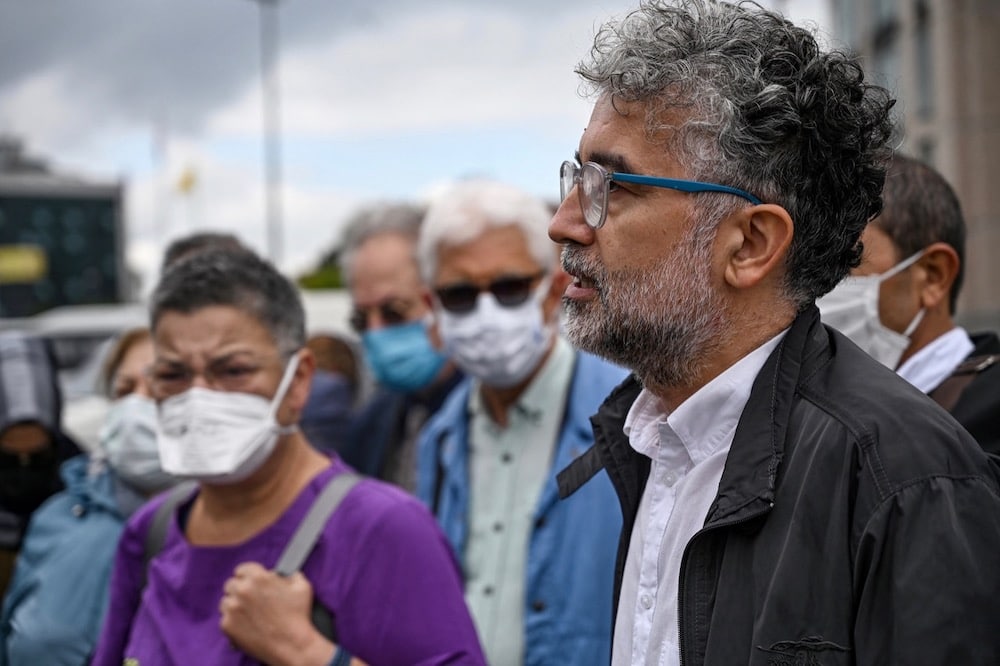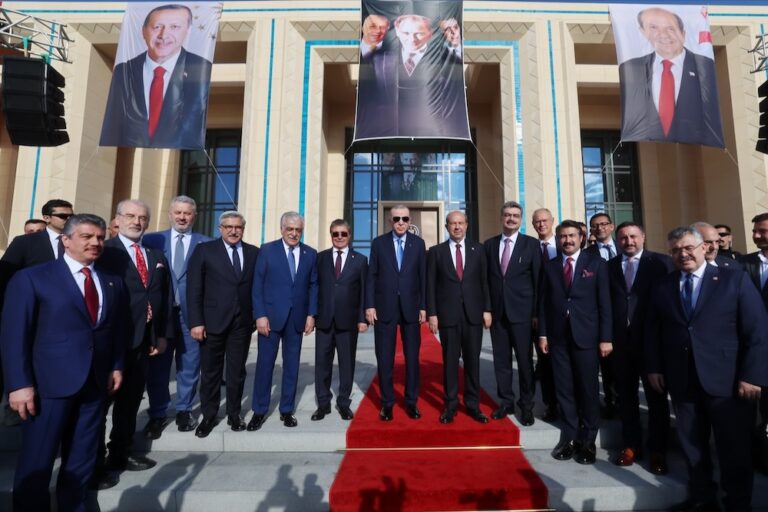The case against journalist Erol Önderoğlu and his co-defendants - postponed yet again this week, until October 2022 - is indicative of the much larger issue of how civic space is being actively and systematically constrained in Turkey.
To the UN Special Rapporteurs on the promotion and protection of the right to freedom of opinion and expression; the rights to freedom of peaceful assembly and of association; the promotion and protection of human rights and fundamental freedoms while countering terrorism; the independence of judges and lawyers; the situation of human rights defenders; the right to physical and mental health; and the OSCE Representative for Media Freedom:
For years, the government of Turkey has attacked, intimidated, and silenced those who promote and defend freedom of expression in Turkey. They have curtailed civic space in the country through the promulgation and implementation of restrictive laws, such as on social media, anti-terrorism, and disinformation. These laws are used to criminalise journalists, human rights defenders, and others for exercising their human right to freedom of expression, forcing them into exile, investigation, imprisonment, or arbitrary detention on baseless charges.
The legal system has also been used to recycle charges and consistently delay due process, keeping defendants in judicial limbo – as in the case of journalists Erol Önderoğlu and Ahmet Nesin, and forensic doctor and head of the Human Rights Foundation of Turkey, Şebnem Koru Fincancı.
In 2016, Erol and his co-defendants were charged with “propagandising for a terrorist organisation” after participating in a solidarity campaign protesting the persistent harassment by judicial authorities of the Kurdish daily newspaper, Özgür Gündem. After a prolonged trial they were acquitted of the charges in 2019, although this was overturned in 2020. Since then, they have been kept in judicial limbo as the trial has continued to be postponed – the most recent postponement being from 1 February 2022 to 14 June 2022. In this time, Erol and his co- defendants have had to experience the stigmatisation of being labelled as terrorists and the resulting impact on family and friends, the stress of drawn out and delayed trials, the financial pressures of building a defence, and the psychological impact of being targeted.
Erol and his co-defendants’ case is also indicative of the much larger issue of how civic space is being actively and systematically constrained in Turkey. The government crackdown through restrictive legislation has led to stigmatising narratives that portray journalists, human rights defenders, and civil society organisations as threats to national security, making them targets of criminalisation and legitimising abuse by law enforcement and judicial authorities.
Ahead of their upcoming trial date on 14 June 2022, we specifically call on the support of the UN Special Rapporteurs and OSCE Representative of Media Freedom. In March 2021, UN Special Rapporteurs sent a communiqué to the Turkish government to share concerns about Erol Önderoğlu’s case and the broader pattern of Turkey’s judicial persecution of journalists. This was echoed in June 2021 when the Special Rapporteur on the situation of human rights defenders issued a statement supported by fellow rapporteurs calling on the government of Turkey to stop mis-using laws to detain human rights defenders. In September 2021, the OSCE Representative for Media Freedom urged Turkish authorities to acquit Erol and his co-defendants ahead of their retrial hearing and ensure an enabling environment for freedom of expression. Looking ahead, the UN Special Rapporteur on violence against women will be undertaking a country visit from 18-27 July 2022 at the invitation of the Turkish government. The visit is welcome given the increased targeting and harassment of women journalists and human rights defenders who have come under attack by Turkish authorities, including prominent figures such as Şebnem, Sedef Kabaş, and Ayşe Gökkan.
Freedom of expression and civic space is being actively restricted and systematically impeded in Turkey today, with ramifications that align with each of your mandates. Given previous communications with the government of Turkey and the upcoming visit in July by the Special Rapporteur on violence against women, we see the UN Special Rapporteurs and OSCE Representative for Media Freedom as having a vital role to play in calling upon the government to uphold the rights and freedoms of Turkish citizens, and to push back against the shrinking of civic space in the country. It is therefore critical that UN experts continue to show their support for Erol and his co-defendants by condemning the actions of the Turkish government.
We urge the UN Special Rapporteurs and OSCE Representative for Media Freedom to:
- Call on the Turkish authorities to drop the baseless charges against Erol and his co-defendants and to reverse the pattern of judicial persecution against journalists, media workers, human rights defenders, and all others exercising their right to freedom of expression;
- Call on the authorities to protect civic space in Turkey by upholding the right to freedom of expression and ceasing the use of legislation to systematically target and abuse citizens exercising their human rights to reinforce the statement made in June 2021 by the Special Rapporteur on the situation of human rights defenders;
- Provide support and assistance to the UN Special Rapporteur on violence against women before, during, and after her country visit; and
- Consider additional actions within the scope of your mandate, including conducting a subsequent country visit and making recommendations to improve freedom of expression in the country and opening independent investigations into the pattern of judicial persecution of those exercising their right to freedom of expression.



